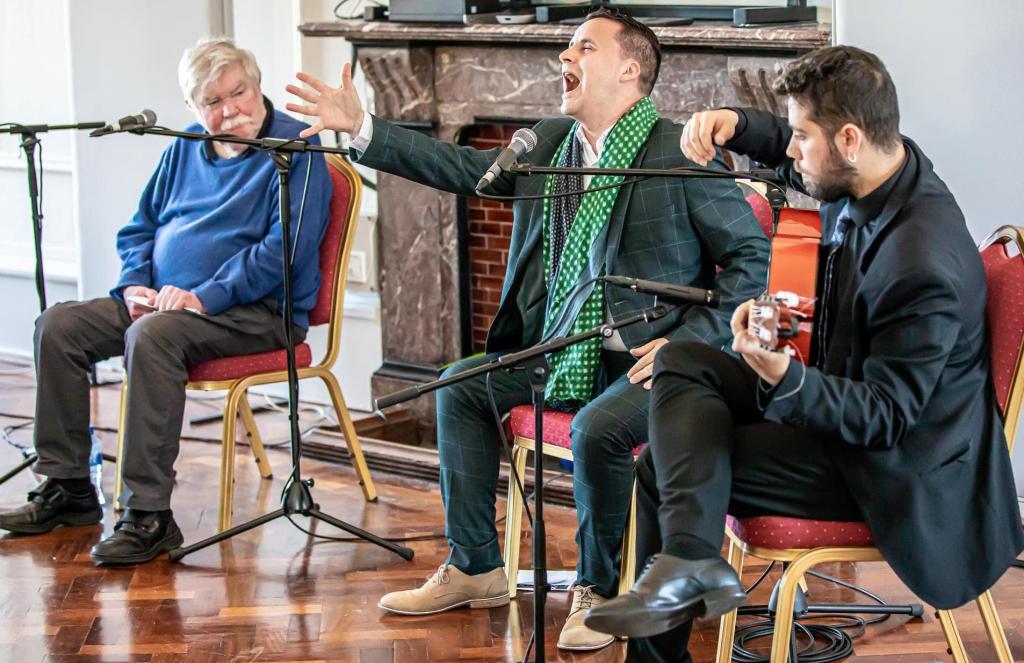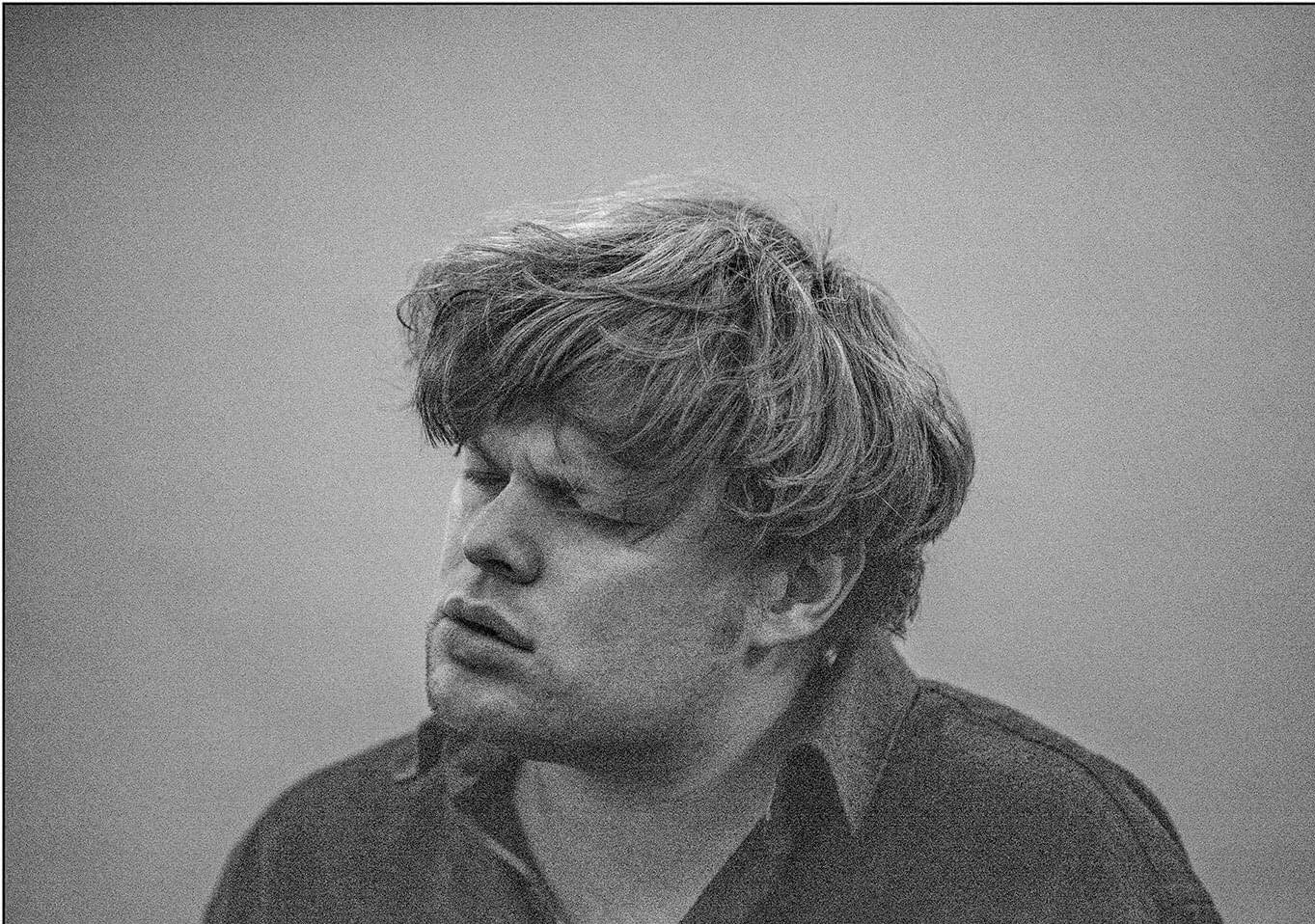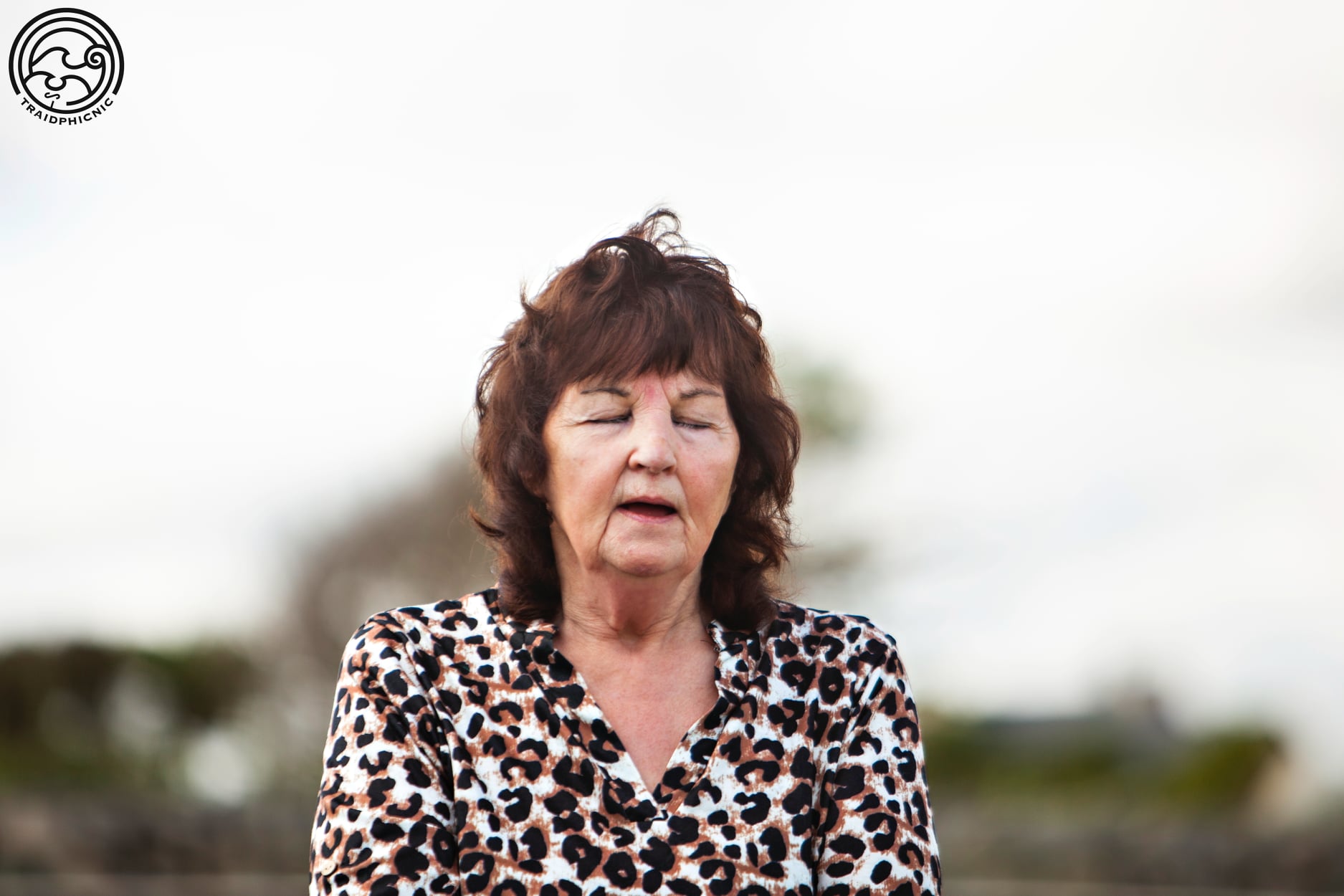Thessaloniki gets ready for its metro launch in November
The underground rapid transit lines have been under construction for almost two decades due to various project delays
 TheMayor.EU logo
TheMayor.EU logo 
Joe Mulheron, Irish traditional singer and Juan Pinilla, Spanish traditional singer performing at the premiere of 'Abair - the Civil War in Spain, Source: Paul Reardon
A conversation with Macdara Yeates, organiser of the ‘Abair’ – a project that focuses on Irish music and its history
The ‘Abair’ is a project about the oral traditions in Irish music that is now a regular part of St Patrick’s Festival in Dublin. This year Macdara Yeates, the organiser of the project, who is also a singer himself, has already travelled to France, Spain, Wales and Scotland. His goal was to track how local traditions influenced the Irish in a shared history of oppression between these regions and how that history has weaved itself into song – both in and outside of Ireland.
Irish traditional music is a very unique phenomenon as it embodies some of the most standout characteristics of the country itself. On the one hand, resilience in the face of a changing world (thanks to the tradition of a word-of-mouth passing of knowledge), yet also an almost paradoxical propensity towards change.
It shares much of these characteristics with the Irish language which managed to survive for 800 years under foreign rule. It was practised as the main form of communication in the western parts of the island and later formed the backbone of Ireland’s continuous linguistic tradition after the country gained its independence in 1922.
The same can be said about the cultural and, more specifically, musical traditions of the Irish, which have been a part of daily life on the island since time immemorial. The songs have also travelled around the world and back, carried by the millions of people that have left the island through the various periods of trial and tribulation in history.
Macdara Yeates is first and foremost a traditional singer. Over the years he says he has been involved in composing music for theatre and a lot of socially engaged projects, both in his neighbourhood of East Wall and around the city of Dublin. He explained that most traditional singers turn into amateur historians through their constant search for old and forgotten songs.
At the same time, he pointed out, traditional music is ingrained in everyday life. He gave the example of kids on the streets of his neighbourhood when he was growing up. He said they would sing songs, which he would later find out were centuries-old melodies. "They just happen to exist in that form, passed down from family to family, through the generations."
 Macdara Yeates, Source: Colm Keating
Macdara Yeates, Source: Colm Keating
In 2019, Yeates curated the first edition of the ‘Abair’ – the word means both ‘to say’ and ‘to sing’ in Irish. The project itself came about as a way to showcase Irish traditional music at the St Patrick’s Festival, stripped down from all of its 'touristic' elements.
The ‘Abair’ also focuses on the oral traditions which, according to Yeates, are a more mellow and intimate take on Ireland’s music. Moreover, he explained, this tradition, in particular, tends to be a bit neglected, as the songs are slower and performances oftentimes do not lend themselves to a big stage. Usually, the songs are performed in small rooms, in bars or even at home and are sung without a microphone and quite often – without accompaniment.
In 2019, the first edition of the ‘Abair’ paired singers with a curated selection of songs that reflect the history of a particular space. For example, they performed in a classic Georgian townhouse, where the different sections of the building presented different social classes in Ireland and their way of life at the turn of the century – the aristocracy, the middle class and the tenements. The songs, on the other hand, were paired according to social class, matching what people would have sung in their daily life.
This year’s edition of the ‘Abair’ focused on reaching out: “Very often, the Irish traditions can be quite insular, like a room full of people patting each other on the back about Irish history. We wanted to look at our shared history with other nations and how Irish culture extends olive branches across the sea and links to other places.”
In 2022, Abair took the form of a series of short films, tracking the journey of Irish folk songs on the continent of Europe. One film focused on the Connolly Column, a brigade of Irish volunteers who fought in the Spanish Civil War, who are quite well remembered in Ireland through songs and by way of their descendants.
Another film looked at the story of Irish revolutionaries after the Easter Rising in 1916 who were interned without trial in a village in Wales called Frongoch. There, the detainees took the time to organise the future of Ireland’s revolutionary movement and made strong connections with the locals.
Frongoch is also located in an area that is a stronghold of Welsh nationalism and the locals remember that history quite fondly, as, according to Macdara Yeates, they saw some hope for the future of their cause in the Irish story.
The third film focused on the story of Yann Fouéré, a Breton nationalist, who left France to live in Connemara, where he could work on his political theories, without fear of suppression by the French government. Fouéré also championed the idea of ‘Europe of 100 Flags’ arguing for a federalised Europe, based on regional, rather than national, identities.
Furthermore, he was one of the founders of the Celtic League, an NGO that aims to promote a modern Celtic identity in Ireland, Scotland, Wales, the Isle of Man, Cornwall and Brittany. The league puts a particular emphasis on promoting the Celtic languages and it advocates for further self-governance and eventual independence of these regions.
Macdara Yeates explains that there is a very strong international movement focusing on the Celtic connections between these regions, however, this was not the project's focus. "We focused more on our shared history of oppression, a history that is relevant to India for example, which lived under British rule, or to Mexico, as a former colony.”
 Sarah Ghriallais, an Irish traditional singer, featured in 'A Breton in Connemara',
Sarah Ghriallais, an Irish traditional singer, featured in 'A Breton in Connemara',
Source: St Patrick's Festival on Facebook
Yeates explained that Andalusia, for example, where most of the international brigades were based during the Spanish Civil War, has no Celtic connection. He pointed out that in a particular way, this shared history has become more relevant again, especially in the wake of Brexit, as many countries are now grappling with their idea of nationhood and sovereignty.
Another good example is Welsh nationalism. It had never been too strong as a secessionist movement until Brexit, which caused some shift in ideas and perceptions. “In Frongoch, the nationalist area we visited, you can see a changing tide.”
Furthermore, he said that after years of relative indifference by locals in Britany and reluctance by the French government, now, finally, the Breton people have gained an official status for their national anthem. Unfortunately, though, the Breton language has still not been granted formal status by France.
“While in many ways, we are digging up old skeletons, these topics have been surprisingly relevant today. The rise of fascism and the far-right in Spain now, for example, is kind of terrifying."
"We went to visit the burial site of Federico Garcia Lorca, who died in the Spanish Civil war, and around the site, there was signage saying ‘Viva Franco’. These things have a resonance today, that I don’t think we talk about. They aren’t purely historical for history’s sake.“
In terms of the European Union, Yeates pointed to Yann Fouéré’s idea of ‘Europe of 100 Flags’. He believes there is hope for smaller nations within nations to find representation in the EU. He also gave the example of Scotland and their independence movement’s principle that the country’s future lies with Europe, rather than with Britain.
“I think the EU in its best form can offer real opportunities for the recognition of smaller peoples, their folk arts, their cultures and that is an ideal worth striving for. If it’s a choice between a sort of imperial nation throwing a few crumbs to a smaller people or the EU, I would pick the EU every time.“
Macdara Yeates emphasised the fact that, in contrast to many folk traditions, Irish music is not at all stagnant or conservative. In fact, it is very much a living thing, that is subject to change and growth. Plus, it is practised in a much wider sense in the country by the people, at home or in public spaces. “There is a notion that tradition is a stagnant thing, that is something that stays in place and is old forever. I don’t think that has ever been the case.”
He gave the example of a pub in Dublin, called the Cobblestone, where traditional music singers and musicians meet and perform in that very communal way. Older people meet younger people, they exchange songs and ideas and influences about how the songs can and should be performed.
Some want to maintain an older way of doing things, others prefer experimentation, such as using drum machines or synthesisers as opposed to fiddles and banjos. But Yeates says these preferences are not dependent on the age of the performer.
At the same time, he pointed out that song choices do indicate changing times. He gave the example with songs that have a more misogynistic undertone, which have now started to fall out of use, as Ireland gains a new perspective on women’s rights. He also mentioned that songs about emigration are becoming more popular once again.
“Those in power write the history, those who suffer write the songs. That has always been the way of it. I would never look to songs as some accurate description of history. I would look to them as an accurate historical account of how people felt.
In its very essence, traditional music shows the people-of-a-certain-time’s imprint onto something older. For me, you need a foot in the past and a foot in the future, you need to look forward but be grounded by what had come before.“
Folklore, he explained, creates a sense of social cohesion, through shared trauma and the affirmation of certain beliefs through generations. It also creates shared experiences between people, a bond in a certain place and at a certain time.
Often, songs are completely misrepresentative of history and they can be used in a propaganda sense. But they also tell you something about the people who sang them and the people who wrote them. Macdara Yeates believes that culture would lose a lot if it lost its connections to songs - it would lose a certain memory and sense of self.

The underground rapid transit lines have been under construction for almost two decades due to various project delays

Now you can get your wine in Talence by paying directly in Bitcoin

That’s because the state has to spend money on updating the railway infrastructure rather than subsidizing the cost of the popular pass

Rethinking renewable energy sources for the urban landscape

The examples, compiled by Beyond Fossil Fuels, can inform and inspire communities and entrepreneurs that still feel trepidation at the prospect of energy transition

Now you can get your wine in Talence by paying directly in Bitcoin

The 10th European Conference on Sustainable Cities and Towns (ESCT) sets the stage for stronger cooperation between the EU, national and local level to fast track Europe's transition to climate neutrality.

At least, that’s the promise made by the mayor of Paris, Anne Hidalgo

The underground rapid transit lines have been under construction for almost two decades due to various project delays

At least, that’s the promise made by the mayor of Paris, Anne Hidalgo

Hostal de Pinós is located in the geographical centre of the autonomous region

Despite its church-y name, the district has long been known as the hangout spot for the artsy crowds

Urban dwellers across the EU are having a say in making their surroundings friendlier to people and the environment.

Forests in the EU can help green the European construction industry and bolster a continent-wide push for architectural improvements.

Apply by 10 November and do your part for the transformation of European public spaces

An interview with the Mayor of a Polish city that seeks to reinvent itself

An interview with the newly elected ICLEI President and Mayor of Malmö

A conversation with the Mayor of Lisbon about the spirit and dimensions of innovation present in the Portuguese capital














